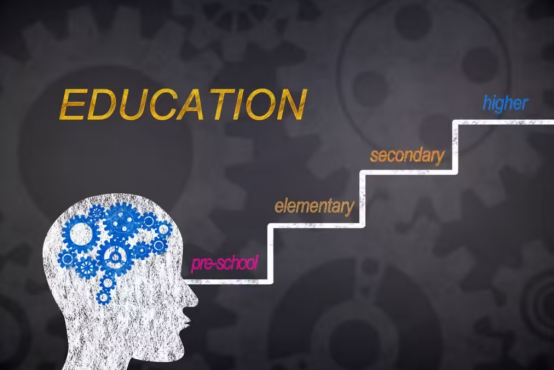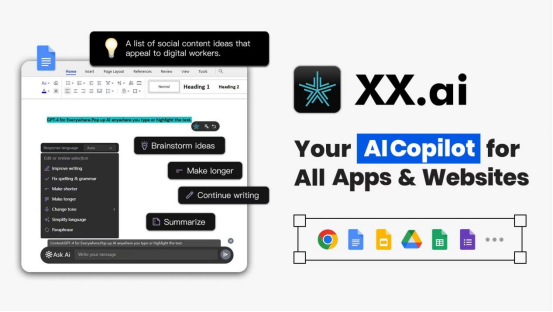Exploring the Frontier of Artificial Intelligence in Higher Education: Transforming Learning and Management

Artificial Intelligence (AI) is integrating into our daily lives at an unprecedented pace. From smart appliances to autonomous driving, AI is transforming many fields. Therefore, understanding and applying AI technology is not only a skill requirement in modern society but also brings new opportunities to reform the educational system. In the field of higher education, the potential of AI is immense, providing innovative methods and tools for students, teachers, and administrators to enhance teaching and learning experiences and improve management efficiency.

What is Artificial Intelligence in Higher Education?
Exploring the frontier of artificial intelligence in higher education involves applying AI technologies to various aspects of higher education to enhance teaching effectiveness, research levels, management efficiency, and student experience. This can include AI tutoring systems, management robots that simplify operations, and complex data analysis tools that drive academic research.

Why Do We Need Artificial Intelligence Education?
In today's rapidly developing technological era, artificial intelligence (AI) has become a key driver of innovation and economic growth. The reasons we need AI education are twofold: it not only meets the urgent demand for high-tech skills in the modern labor market but also enables us to gain a competitive edge globally. AI education can help cultivate a generation of talents capable of using AI technologies to solve complex problems, thereby addressing global challenges such as climate change, healthcare, and resource management. Additionally, AI education can enhance society's overall technological literacy, ensuring that no significant digital divide emerges during technology dissemination. Moreover, ethical and legal issues brought about by AI need to be regulated through systematic education to ensure the technology's safety and sustainable development. Therefore, AI education is not merely an academic task but a key driver for social progress and achieving a sustainable future.
Advantages of Artificial Intelligence in Higher Education
The advantages of artificial intelligence in higher education mainly include the following aspects:
Personalized Learning
- Customized Teaching Content: Utilizing AI to analyze students' learning habits and progress, recommending personalized learning resources and paths to meet the needs of different students.
- Real-time Feedback and Adjustment: Through intelligent teaching systems, teachers and students can timely obtain learning data feedback, thus quickly adjusting teaching strategies and learning methods.
Improving Teaching Quality and Efficiency
- Automated Tasks: XXAI uses GPT-4's natural language processing capabilities to automatically grade student assignments and exams, significantly reducing teachers' workload while ensuring fairness and consistency in assessment. Teachers can generate detailed grading reports and feedback through XXAI, helping students understand mistakes and improve.
- Enhanced Interactivity: The GPT-4 and Claude 3 models in XXAI can serve as intelligent assistants or virtual teachers, providing round-the-clock support and Q&A services. Students can ask XXAI questions at any time during their learning process and receive timely and accurate answers. Additionally, XXAI can offer personalized learning suggestions and resource recommendations, making full use of students' fragmented time for learning.
- Real-time Content Generation and Visualization: Using the DALL-E 3 model, XXAI can generate high-quality images, charts, and other visual materials in real-time based on teaching content, which is particularly helpful for understanding complex concepts.

Data-driven Decision Making
- Educational Big Data Analysis: By analyzing learning data and behavior data, educational institutions can more scientifically formulate teaching plans and strategies.
- Predictive Analytics: AI can predict students' academic performance, exam results, and graduation probabilities, helping to timely identify and address potential issues.
Research Support
- Literature and Data Processing: AI can efficiently retrieve and organize massive amounts of research literature, automatically extracting valuable information and data, thus improving research efficiency.
- Experiment Simulation: AI can perform complex experiment simulations and data analysis, assisting researchers in scientific exploration and innovation.
Career Planning and Employment Guidance
- Personalized Career Advice: By analyzing students' interests, skills, and market demand, AI can provide tailored career planning and employment advice.
- Job Matching: AI can efficiently match students with job opportunities, increasing employment success rates.
Innovative Teaching Models
- Online Education and Blended Learning: AI technology makes online education platforms more intelligent, supporting diverse blended learning models and improving learning outcomes.
- Virtual Laboratories and Simulation Courses: Virtual reality (VR) and augmented reality (AR) technologies combined with AI provide immersive experimental and learning experiences.
Challenges of Artificial Intelligence in Higher Education
Despite the numerous benefits of AI in higher education, its development still faces several challenges.
Data Privacy and Security
- Data Privacy Issues: AI systems require the collection and processing of large amounts of student data, which may pose risks of data privacy breaches.
- Data Security Risks: It is necessary to ensure that student and teacher data is not overly exposed during transmission and storage to prevent misuse or hacking.
Technical Proficiency and Adaptability
- Technical Proficiency of Teachers and Students: Not all teachers and students are familiar with the use of AI technologies, requiring extensive training to enhance their technical application capabilities.
- Technical Support: Continuous technical support and maintenance are crucial for the stable operation of AI systems, necessitating additional resource investment.
Cost and Resource Investment
- Financial Investment: Developing, deploying, and maintaining AI systems requires substantial funds, a significant challenge for some educational institutions, especially those with tight budgets.
- Continuous Improvement and Updating: Rapid technological development means AI systems need constant updates and improvements, which entails long-term resource commitment.
Ethics and Responsibility
- Ethical Issues: How to embed ethical standards in AI systems to ensure their use complies with moral norms and avoid bias and discriminatory behavior.
- Responsibility Attribution: Clear responsibility and management mechanisms are needed to determine who is accountable when AI systems make errors (e.g., grading errors or producing misleading information).
Educational Resource Inequality
- Unequal Resource Distribution: The technology resources and financial support available to higher education institutions vary, potentially leading to significant disparities in AI application, exacerbating educational inequality.
The Future of Artificial Intelligence in Higher Education
The application of artificial intelligence (AI) in higher education has already shown tremendous potential, and its impact will be even deeper in the future.
Smart Classrooms
Future classrooms will be fully intelligent. AI can monitor and feedback students' learning states in real-time, helping teachers improve teaching methods and enhance learning outcomes.
Predictive Analytics
AI can analyze student behavior and performance, identify potential problems early, and intervene to help students achieve better academic results.
Global Learning
AI platforms will break geographical barriers, connecting students and teachers worldwide, providing a globalized learning environment and collaboration opportunities.
Curriculum Development
AI can analyze industry trends and job market demands, assisting schools in designing and updating curricula to ensure that students' knowledge and skills remain market-relevant.
Frequently Asked Questions
What is Artificial Intelligence in Education?
Artificial intelligence in education involves using AI technologies to improve teaching, learning, and management processes.
How does Artificial Intelligence Achieve Personalized Learning?
Artificial intelligence achieves personalized learning by adapting to each student's needs and providing customized support and resources.
What are the Challenges of Implementing AI in Higher Education?
Challenges include data privacy issues, high costs, ethical considerations, and resistance to change.
Conclusion
In summary, exploring the frontier of artificial intelligence in higher education is a journey filled with both challenges and opportunities. While overcoming challenges such as data privacy, security issues, and implementation costs, we can fully harness AI's potential to provide students with more personalized, efficient, and inclusive education. Looking forward, as technology continues to advance, AI will play an increasingly important role in higher education, bringing profound impacts to the education sector for all humanity. Let us embrace this transformation and collectively create a bright future for education.